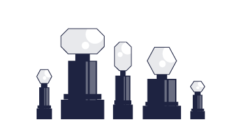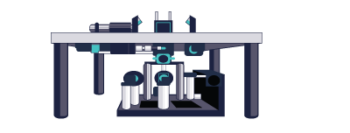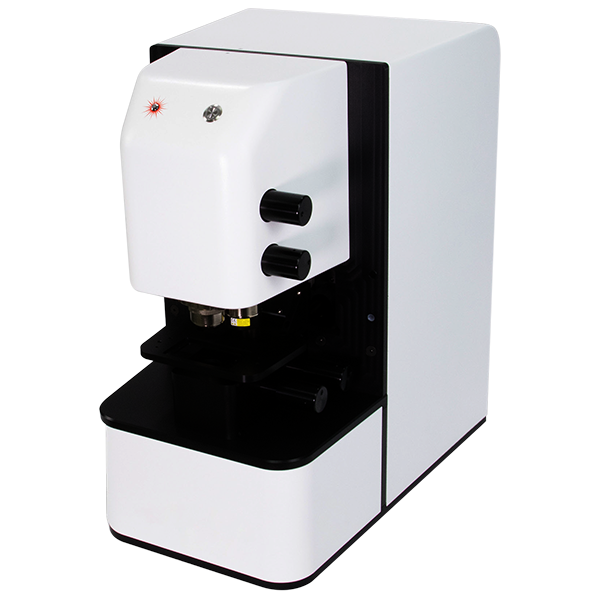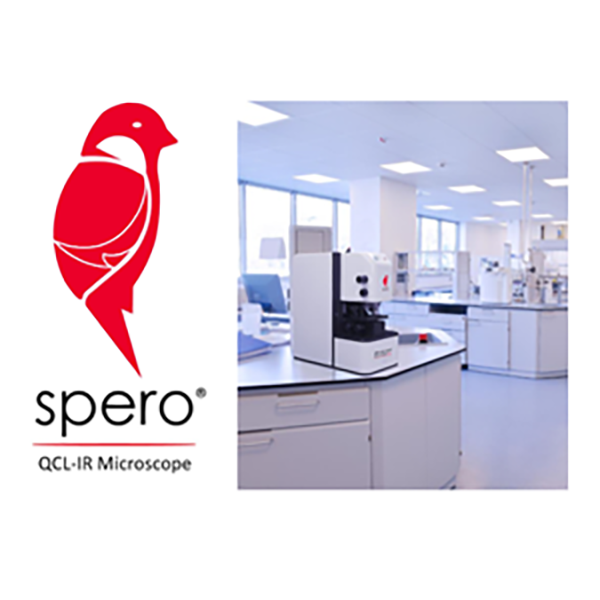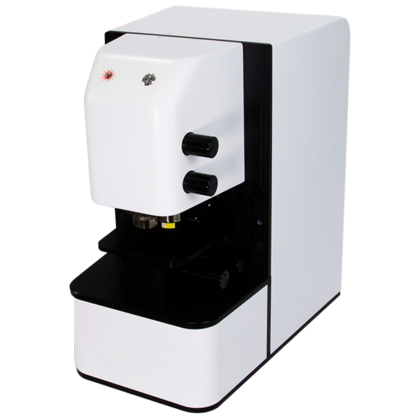A lower cost alternative to the Spero-QT 340, for laser-based IR chemical imaging
In a class of their own, the Spero® microscopes are the world’s first and only fully integrated, wide-field spectroscopic microscopy and imaging platforms based on our broadly tunable mid-infrared quantum cascade laser technology.
The Spero-LT 340 is the latest model in the Spero product family. The LT offers the same high-performance speed and resolution specifications as the Spero-QT 340 flagship model but is economically configured to address a wide range of materials and life sciences research applications while fitting within tight budget constraints. Contact us to learn what configuration options are available.
Features & Benefits
- Real-time, high-throughput spectral imaging enabled by ultra-high brightness QCL technology
- No stains or molecular tags required
- Label-free IR spectroscopy displays pure chemistry of sample
- No cryogenic cooling needed
- Quick setup means more time for analysis
Applications
- Biomedical imaging of tissues, cells, and fluids
- Cancer research
- Pharmaceutical testing of tablets, powders, and liquids
- Drug discovery: API and excipient optimisation and down-selection
- Protein secondary structure and aggregation testing
- Real-time reaction monitoring
- Materials testing and analysis
- Forensics
- Chemical detection and identification










